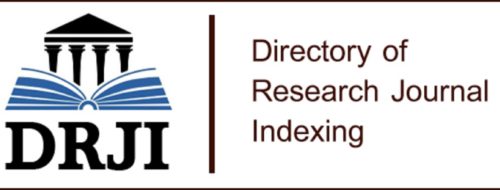Institutions of free market economy, economic globalization and human development: an empirical investigation for OECD countries
Öz
In this study, the relationship between the institutions of capitalist system and human development is investigated for OECD countries. An index indicating the free market institutions has been established which includes protection of property, legal enforcement of contracts, rule of law and government size. We also used economic globalization data to indicate liberalization of trade and finance dimensions of free market. According to cointegration results, there is a long run cointegration relationship between the variables. According to long run coefficients, the adaptation level of countries to the capitalist system and economic globalization effects development positively.
Anahtar Kelimeler
Kaynakça
- Akhter, Syed H. (2004), “Is globalization what it’s cracked up to be? Economic freedom, corruption, and human development”, Journal of World Business, 39(3), pp. 283-295.
- Alchian, Armen Albert; Demsetz, Harold (1972), “Production, information costs, and economic organization”, The American economic review, 62(5), pp. 777-795.
- Breusch, Trevor S.; Pagan, Adrian R. (1980), “The Lagrange multiplier test and its applications to model specification in econometrics”, The Review of Economic Studies, 47(1), pp. 239-253.
- Carter, John R. (2007), “An empirical note on economic freedom and income inequality”, Public Choice, 130(2), pp. 163-177.
- Castells, Manuel; Portes, Alejandro (1989), “World underneath: The origins, dynamics, and effects of the informal economy”, The informal economy: Studies in advanced and less developed countries, 12.
- Chang, Tsangyao; Gupta, Rangan; Inglesi-Lotz, Roula; Simo-Kengne, Beatrice; Smithers, Devon; Trembling, Amy (2015), “Renewable energy and growth: Evidence from heterogeneous panel of G7 countries using Granger causality”, Renewable and Sustainable Energy Reviews, 52, pp. 1405-1412.
- Checherita-Westphal, Cristina; Rother, Philip (2012), “The impact of high government debt on economic growth and its channels: An empirical investigation for the euro area”, European Economic Review, 56(7), pp. 1392-1405.
- Chudik, Alexander; Pesaran, Mohammad Hashem (2013), “Large panel data models with cross-sectional dependence: a survey”, CESifo Working Paper, No. 4371.
- Chudik, Alexander; Pesaran, Mohammad Hashem (2015), “Common correlated effects estimation of heterogeneous dynamic panel data models with weakly exogenous regressors”, Journal of Econometrics, 188(2), pp. 393-420.
- Coase, Ronald Harry (1937), “The nature of the firm”, economica, 4(16), pp. 386-405.
- De Vos, Ignace; Everaert, Gerdie (2016), “Bias-corrected Common Correlated Effects Pooled estimation in homogeneous dynamic panels”, Working Papers of Faculty of Economics and Business Administration, Belgium: Ghent University.
- Dhaene, Geert; Jochmans, Koen (2015). “Split-panel jackknife estimation of fixed-effect models”, The Review of Economic Studies, 82(3), pp. 991-1030.
- Dreher, Axel (2006), “Does globalization affect growth? Evidence from a new index of globalization”, Applied economics, 38(10), pp. 1091-1110.
- Friedman, Milton (1988). Kapitalizm ve Özgürlük, Çev. Doğan Erberk ve Nilgün Himmetoğlu), İstanbul: Altın Kitaplar.
- Furubotn, Eirik; Pejovich, Svetozar (1972), “Property rights and economic theory: a survey of recent literatüre”, Journal of economic literature, 10(4), pp. 1137-1162.
- Greif, Avner (2006), Institutions and the path to the modern economy: Lessons from medieval trade, London: Cambridge University Press.
- Grubel, Herbert (1998), “Economic freedom and human welfare: Some empirical findings”, Cato J., 18: pp. 287-304.
- Gujarati, Damodar; Porter, Dawn (2012), Temel ekonometri, Çev.: Ümit Şenesen ve Gülay Günlük Şenesen, İstanbul: Literatür Yayıncılık.
- Güney, Taner (2017), “Ekonomik özgürlük ve insani gelişmişlik” Hitit Üniversitesi Sosyal Bilimler Enstitüsü Dergisi, 10(2), ss. 1109-1120.
- Gwartney, James; Lawson, Robert; Block, Walter (1996), “Economic freedom of the World, 1975-1995”, The Fraser Institute.
- Gwartney, James; Lawson, Robert; Hall, Joshua (2014), “Economic freedom of the world, 2014”, The Fraser Institute.
- Haggard, Stephan; MacIntyre, Andrew; Tiede, Lydia (2008), “The rule of law and economic development”, Annu. Rev. Polit. Sci., 11, pp. 205-234.
- Howell, Llewellyn (2011), International country risk guide methodology, New York: PRS Group.
- Worldbank (2018), “World Development Indicators”, İnternet Adresi: https://data.worldbank.org/indicator/NE.GDI.TOTL.ZS, Erişim Tarihi: 01.06.2018
- Kasper, Wolfgang (2007). Ekonomik Özgürlük ve Gelişme. Mülkiyet Hakları, Rekabet ve Refah Üzerine Bir İnceleme, Çev. Bahadır Akın, Ankara: Liberte Yayınları.
- Lane, Frederic (1969), “Meanings of capitalism”, The Journal of Economic History, 29(1), pp. 5-12.
- Naanwaab, Cephas (2018), “Does economic freedom promote human development? New evidence from a cross-national study”, The Journal of Developing Areas, 52(3), pp. 183-198.
- North, Douglas C. (2002), Kurumlar, kurumsal değişim ve ekonomik performans, Çev.: Gül Çağalı Güven), İstanbul: Sabancı Üniversitesi.
- Norton, Seth (1998), “Poverty, property rights, and human well-being: a cross-national study”, Cato J., 18, pp. 233-245.
- Norton, Seth (2003), “Economic institutions and human well-being: A cross-national analysis”, Eastern Economic Journal, 29(1), pp. 23-40.
- Pehlivanoğlu, Ferhat; Alabaş, Mustafa Mert (2017), “Kurumların İnsani Gelişme Üzerindeki Etkisi: Türkiye Örneği (1996-2014)”, Kastamonu Üniversitesi İktisadi ve İdari Bilimler Fakültesi Dergisi, 17(3), ss. 35-53.
- Pejovich, Svetozar (1990), The economics of property rights: Towards a theory of comparative systems, New York: Springer Science & Business Media.
- Pesaran, Mohammad Hashem (2004), “General diagnostic tests for cross section dependence in panels”, CESifo Working Paper, No. 1229.
- Pesaran, Mohammad Hashem (2006), “Estimation and inference in large heterogeneous panels with a multifactor error structure”, Econometrica,74(4), pp. 967-1012.
- Pesaran, Mohammad Hashem (2007), “A simple panel unit root test in the presence of cross‐section dependence”, Journal of applied econometrics, 22(2), pp. 265-312.
- Pesaran, Mohammad Hashem, Yamagata, Takashi (2008), “Testing slope homogeneity in large panels”, Journal of Econometrics, 142(1), pp. 50-93.
- Pesaran, Mohammad Hashem; Ullah, Aman; Yamagata, Takashi (2008), "A bias‐adjusted LM test of error cross‐section independence”, The Econometrics Journal, 11(1), pp. 105-127.
- Ram, Rati (2014), “Measuring economic freedom: a comparison of two major sources”, Applied Economics Letters, 21(12), pp. 852-856.
- Rutherford, Malcolm (1981), “Clarence Ayres and the instrumental theory of value”, Journal of Economic Issues, 15(3), pp. 657-673.
- Sabi, Manijeh (2007), “Globalization and human development”, International Conference on Globalization and Its Discontents, Cortland, The Sage Colleges, USA.
- Schumpeter, Joseph A. (2007). Kapitalizm, sosyalizm ve demokrasi, Çev.: Hasan İlhan, Ankara: Alter Yayınları.
- Sen, Amartya K. (1999), Development as freedom, New York: Knopf.
- Shleifer, Andrei; Vishny, Robert (1994), “Politicians and firms”, The Quarterly Journal of Economics, 109(4), pp. 995-1025.
- Swamy, Paravastu (1970), “Efficient inference in a random coefficient regression model”, Econometrica: Journal of the Econometric Society, 38(2), pp. 311-323.
- Taeusch, Carl Frederick (1935), “What is" Capitalism"?”, The International Journal of Ethics, 45(2), pp. 221-234.
- United Nations Development Programme (2015), Human Development Report 2014. Training Material for Producing National Human Development Reports, New York: UNDP.
- United Nations Development Programme (2016), Human Development Report 2016. Human Development for Everyone, New York: UNDP.
- von Hayek, Friedrich A. (1968), “Competition as a discovery procedure: The essence of Hayek”, Hoover Institution Press, pp. 254-265.
- von Hayek, Friedrich A. (1996). Hukuk, yasama ve özgürlük, Çev.: Atilla Yayla, İstanbul: İş Bankası Yayınları.
- Wallis, John; North, Douglas C. (1986), “Measuring the transaction sector in the American economy, 1870-1970”, Long-term factors in American economic growth, University of Chicago Press, pp. 95-162.
- Westerlund, Joakim; Edgerton, David (2007), “A panel bootstrap cointegration test”, Economics Letters, 97(3), pp. 185-190.
Piyasa ekonomisi kurumları, ekonomik küreselleşme ve insani gelişme: OECD ülkeleri için ampirik bir araştırma
Öz
Bu çalışmada, kapitalist sistemin kurumları ile insani gelişme arasındaki ilişki OECD ülkeleri için araştırılmıştır. Çalışmada, mülkiyet haklarının korunması, sözleşmelerin uygulanması, hukukun üstünlüğü ve ekonomide kamu kesimi büyüklüğü göstergeleri kullanılarak ülkelerin kapitalist sisteme uyum derecesini ifade eden özet bir serbest piyasa endeksi oluşturulmuştur. Ayrıca serbest piyasa ekonomisinin, ticari ve finansal serbestleşme boyutlarını ifade etmek üzere ekonomik küreselleşme endeksi kullanılmıştır. Eş bütünleşme testi sonuçlarına göre, değişkenler arasında uzun dönemli bir ilişki mevcuttur. Uzun dönem katsayı tahmin sonucuna göre ise ülkelerin kapitalist sisteme uyum derecesinin artmasının ve ekonomik küreselleşmenin, kalkınmayı uzun dönemde pozitif yönde etkilediğini göstermektedir.
Anahtar Kelimeler
Kapitalizm Mülkiyet Hakları Hukukun Üstünlüğü İnsani Gelişme
Kaynakça
- Akhter, Syed H. (2004), “Is globalization what it’s cracked up to be? Economic freedom, corruption, and human development”, Journal of World Business, 39(3), pp. 283-295.
- Alchian, Armen Albert; Demsetz, Harold (1972), “Production, information costs, and economic organization”, The American economic review, 62(5), pp. 777-795.
- Breusch, Trevor S.; Pagan, Adrian R. (1980), “The Lagrange multiplier test and its applications to model specification in econometrics”, The Review of Economic Studies, 47(1), pp. 239-253.
- Carter, John R. (2007), “An empirical note on economic freedom and income inequality”, Public Choice, 130(2), pp. 163-177.
- Castells, Manuel; Portes, Alejandro (1989), “World underneath: The origins, dynamics, and effects of the informal economy”, The informal economy: Studies in advanced and less developed countries, 12.
- Chang, Tsangyao; Gupta, Rangan; Inglesi-Lotz, Roula; Simo-Kengne, Beatrice; Smithers, Devon; Trembling, Amy (2015), “Renewable energy and growth: Evidence from heterogeneous panel of G7 countries using Granger causality”, Renewable and Sustainable Energy Reviews, 52, pp. 1405-1412.
- Checherita-Westphal, Cristina; Rother, Philip (2012), “The impact of high government debt on economic growth and its channels: An empirical investigation for the euro area”, European Economic Review, 56(7), pp. 1392-1405.
- Chudik, Alexander; Pesaran, Mohammad Hashem (2013), “Large panel data models with cross-sectional dependence: a survey”, CESifo Working Paper, No. 4371.
- Chudik, Alexander; Pesaran, Mohammad Hashem (2015), “Common correlated effects estimation of heterogeneous dynamic panel data models with weakly exogenous regressors”, Journal of Econometrics, 188(2), pp. 393-420.
- Coase, Ronald Harry (1937), “The nature of the firm”, economica, 4(16), pp. 386-405.
- De Vos, Ignace; Everaert, Gerdie (2016), “Bias-corrected Common Correlated Effects Pooled estimation in homogeneous dynamic panels”, Working Papers of Faculty of Economics and Business Administration, Belgium: Ghent University.
- Dhaene, Geert; Jochmans, Koen (2015). “Split-panel jackknife estimation of fixed-effect models”, The Review of Economic Studies, 82(3), pp. 991-1030.
- Dreher, Axel (2006), “Does globalization affect growth? Evidence from a new index of globalization”, Applied economics, 38(10), pp. 1091-1110.
- Friedman, Milton (1988). Kapitalizm ve Özgürlük, Çev. Doğan Erberk ve Nilgün Himmetoğlu), İstanbul: Altın Kitaplar.
- Furubotn, Eirik; Pejovich, Svetozar (1972), “Property rights and economic theory: a survey of recent literatüre”, Journal of economic literature, 10(4), pp. 1137-1162.
- Greif, Avner (2006), Institutions and the path to the modern economy: Lessons from medieval trade, London: Cambridge University Press.
- Grubel, Herbert (1998), “Economic freedom and human welfare: Some empirical findings”, Cato J., 18: pp. 287-304.
- Gujarati, Damodar; Porter, Dawn (2012), Temel ekonometri, Çev.: Ümit Şenesen ve Gülay Günlük Şenesen, İstanbul: Literatür Yayıncılık.
- Güney, Taner (2017), “Ekonomik özgürlük ve insani gelişmişlik” Hitit Üniversitesi Sosyal Bilimler Enstitüsü Dergisi, 10(2), ss. 1109-1120.
- Gwartney, James; Lawson, Robert; Block, Walter (1996), “Economic freedom of the World, 1975-1995”, The Fraser Institute.
- Gwartney, James; Lawson, Robert; Hall, Joshua (2014), “Economic freedom of the world, 2014”, The Fraser Institute.
- Haggard, Stephan; MacIntyre, Andrew; Tiede, Lydia (2008), “The rule of law and economic development”, Annu. Rev. Polit. Sci., 11, pp. 205-234.
- Howell, Llewellyn (2011), International country risk guide methodology, New York: PRS Group.
- Worldbank (2018), “World Development Indicators”, İnternet Adresi: https://data.worldbank.org/indicator/NE.GDI.TOTL.ZS, Erişim Tarihi: 01.06.2018
- Kasper, Wolfgang (2007). Ekonomik Özgürlük ve Gelişme. Mülkiyet Hakları, Rekabet ve Refah Üzerine Bir İnceleme, Çev. Bahadır Akın, Ankara: Liberte Yayınları.
- Lane, Frederic (1969), “Meanings of capitalism”, The Journal of Economic History, 29(1), pp. 5-12.
- Naanwaab, Cephas (2018), “Does economic freedom promote human development? New evidence from a cross-national study”, The Journal of Developing Areas, 52(3), pp. 183-198.
- North, Douglas C. (2002), Kurumlar, kurumsal değişim ve ekonomik performans, Çev.: Gül Çağalı Güven), İstanbul: Sabancı Üniversitesi.
- Norton, Seth (1998), “Poverty, property rights, and human well-being: a cross-national study”, Cato J., 18, pp. 233-245.
- Norton, Seth (2003), “Economic institutions and human well-being: A cross-national analysis”, Eastern Economic Journal, 29(1), pp. 23-40.
- Pehlivanoğlu, Ferhat; Alabaş, Mustafa Mert (2017), “Kurumların İnsani Gelişme Üzerindeki Etkisi: Türkiye Örneği (1996-2014)”, Kastamonu Üniversitesi İktisadi ve İdari Bilimler Fakültesi Dergisi, 17(3), ss. 35-53.
- Pejovich, Svetozar (1990), The economics of property rights: Towards a theory of comparative systems, New York: Springer Science & Business Media.
- Pesaran, Mohammad Hashem (2004), “General diagnostic tests for cross section dependence in panels”, CESifo Working Paper, No. 1229.
- Pesaran, Mohammad Hashem (2006), “Estimation and inference in large heterogeneous panels with a multifactor error structure”, Econometrica,74(4), pp. 967-1012.
- Pesaran, Mohammad Hashem (2007), “A simple panel unit root test in the presence of cross‐section dependence”, Journal of applied econometrics, 22(2), pp. 265-312.
- Pesaran, Mohammad Hashem, Yamagata, Takashi (2008), “Testing slope homogeneity in large panels”, Journal of Econometrics, 142(1), pp. 50-93.
- Pesaran, Mohammad Hashem; Ullah, Aman; Yamagata, Takashi (2008), "A bias‐adjusted LM test of error cross‐section independence”, The Econometrics Journal, 11(1), pp. 105-127.
- Ram, Rati (2014), “Measuring economic freedom: a comparison of two major sources”, Applied Economics Letters, 21(12), pp. 852-856.
- Rutherford, Malcolm (1981), “Clarence Ayres and the instrumental theory of value”, Journal of Economic Issues, 15(3), pp. 657-673.
- Sabi, Manijeh (2007), “Globalization and human development”, International Conference on Globalization and Its Discontents, Cortland, The Sage Colleges, USA.
- Schumpeter, Joseph A. (2007). Kapitalizm, sosyalizm ve demokrasi, Çev.: Hasan İlhan, Ankara: Alter Yayınları.
- Sen, Amartya K. (1999), Development as freedom, New York: Knopf.
- Shleifer, Andrei; Vishny, Robert (1994), “Politicians and firms”, The Quarterly Journal of Economics, 109(4), pp. 995-1025.
- Swamy, Paravastu (1970), “Efficient inference in a random coefficient regression model”, Econometrica: Journal of the Econometric Society, 38(2), pp. 311-323.
- Taeusch, Carl Frederick (1935), “What is" Capitalism"?”, The International Journal of Ethics, 45(2), pp. 221-234.
- United Nations Development Programme (2015), Human Development Report 2014. Training Material for Producing National Human Development Reports, New York: UNDP.
- United Nations Development Programme (2016), Human Development Report 2016. Human Development for Everyone, New York: UNDP.
- von Hayek, Friedrich A. (1968), “Competition as a discovery procedure: The essence of Hayek”, Hoover Institution Press, pp. 254-265.
- von Hayek, Friedrich A. (1996). Hukuk, yasama ve özgürlük, Çev.: Atilla Yayla, İstanbul: İş Bankası Yayınları.
- Wallis, John; North, Douglas C. (1986), “Measuring the transaction sector in the American economy, 1870-1970”, Long-term factors in American economic growth, University of Chicago Press, pp. 95-162.
- Westerlund, Joakim; Edgerton, David (2007), “A panel bootstrap cointegration test”, Economics Letters, 97(3), pp. 185-190.
Ayrıntılar
| Birincil Dil | Türkçe |
|---|---|
| Bölüm | Makaleler |
| Yazarlar | |
| Yayımlanma Tarihi | 30 Haziran 2019 |
| Kabul Tarihi | 3 Ocak 2019 |
| Yayımlandığı Sayı | Yıl 2019 Sayı: 53 |
Cited By
EKONOMİK ÖZGÜRLÜK ENDEKSİ, İNSANİ GELİŞME ENDEKSİ VE EKOLOJİK AYAK İZİ: E7 ÜLKELERİ İÇİN AMPİRİK BİR ANALİZ
Dicle Üniversitesi İktisadi ve İdari Bilimler Fakültesi Dergisi
https://doi.org/10.53092/duiibfd.992572













ERÜ İktisadi ve İdari Bilimler Fakültesi Dergisi 2021 | iibfdergi@erciyes.edu.tr
Bu eser Creative Commons Atıf-Gayri Ticari-Türetilemez 4.0 Uluslararası Lisansı ile lisanslanmıştır.


